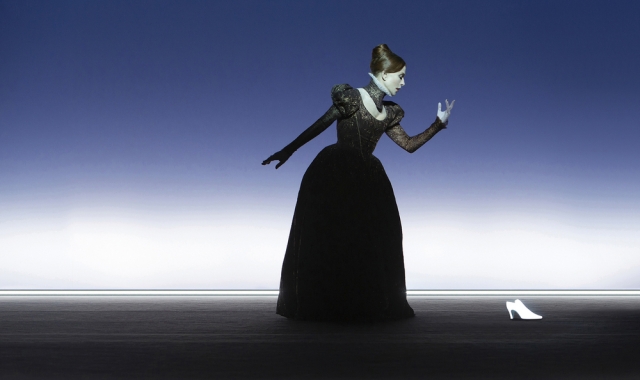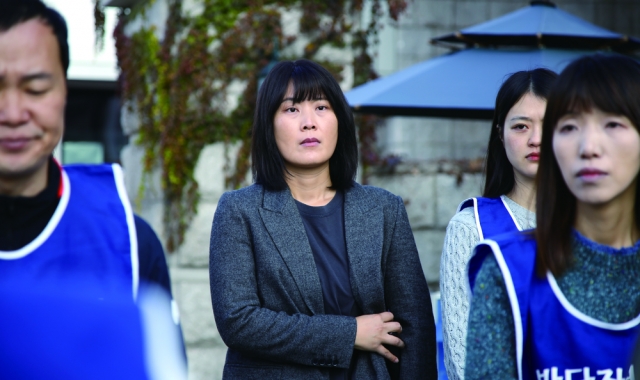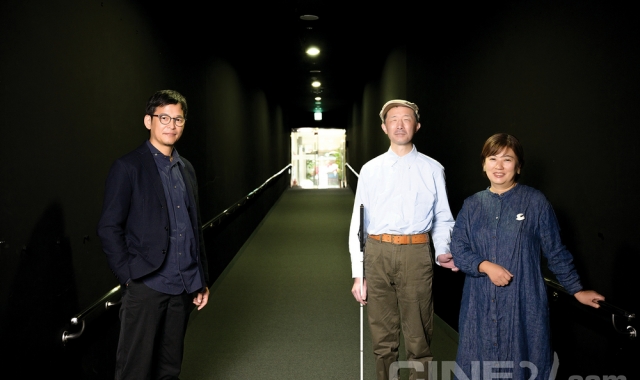
헝가리영화를 마지막으로 본 게 언제인지? 꽤 최근에, 아마 알지도 못한 채, 봤을 것이다. 디스토피아를 그린 뱀파이어 대 늑대인간 스릴러인 <언더월드>(사진)는 영국 배우 케이트 베킨세일을 주연으로 하고 감독, 각색은 미국인들이 했다. 하지만 부다페스트 올 로케인데다 많은 헝가리인을 기술 스탭으로 썼다. 헝가리가 15년 전 자본주의 국가가 되면서 이 나라의 값싼 (그리고 분위기 나는) 촬영지를 사용한 여러 영화 중 하나이다. 수년간 부다페스트와 프라하는 서로 “동유럽의 할리우드”가 되겠다고 경쟁해왔는데, 프라하가 비용 면에서는 약간의 우위를 차지하는 편이었다. 이제는 또 다른 옛 사회주의권 동료국가로 루마니아가, <콜드 마운틴>을 모셨던 후광을 등에 업고 스튜디오 시설에 본격적으로 투자하고 있다.
이 모든 것으로 볼 때, 4월1일부터 발효되는 헝가리의 새 영화법이 마침 제때 등장했다. 헝가리 국내 영화인들이 10년 동안이나 정부를 상대로 로비를 벌인 결과인 이 법에는 외국 제작자들에게 20%의 세금 감면 혜택이 포함되어 있다. 이 법이 좀더 일찍 실시되었더라면 헝가리는 부다페스트와 프라하에서 모두 로케이션 촬영을 한 <블레이드2> <샹하이 나이츠> <스파이 게임> 같은 최근의 할리우드 작품들에서 참여율을 높일 수 있었을지도 모른다.
1930년대부터 헝가리는 적극적으로 자국 출신 재능인들을 서구로 수출해왔다. 알렉산더 코르다는 유력한 ‘영국’ 제작자가 되었고 마이클 커티즈는 손꼽히는 ‘미국’ 감독이 되었다. 1950년대에 MGM사 스튜디오 식당 입구에는 다음과 같이 농을 거는 간판이 있을 정도였다. “여기서 일하는 데 꼭 헝가리인일 필요는 없지만, 만일 그렇다면 그 덕은 본다.”
겨우 인구 1천만명인 작은 나라치고 헝가리는 놀라울 정도로 약동하는 문화와 강한 민족 정체성을 가졌다. 필자는 1979년 이래 헝가리 영화주간의 초청손님으로 매년 2월에 헝가리를 방문해왔는데, 헝가리인들의 날카로운 위트, 강한 향과 특유의 깊은 맛이 나는 음식, 알아들을 수 없는 중앙아시아계 언어, 그리고 물론, 그네들의 영화를 사랑하게 되었다. 이제 캐나다의 로버트 란토스나 할리우드의 앤디 바즈나 같은 헝가리 태생 제작자들이 영화를 찍으러 고국에 돌아오기 시작했다. 더욱 신나는 일은 미국 태생의 헝가리인들이 자기 뿌리를 재발견하기 시작했다는 것이다.
지난해 헝가리 내 최대 히트작은 <검표>(Control)(원제 <Kontroll>)였다. 어디로 튈지 모르는 파란만장한 드라마로 부다페스트 지하철을 배경으로 하는 로스앤젤레스 태생의 님로드 안탈(30) 감독의 장편데뷔작이다. 이 영화는 프랑스 뤽 베송 감독의 <서브웨이>(1985)와 백운학 감독의 <튜브>(2003)에다 1974년작 미국 스릴러 <지하의 하이재킹>의 요소를 섞어놓은 듯 보인다. 그러나 어둡고 너저분한 스타일과 탈중심적 구성 그리고 상식적 논리를 벗어난 대목들에 있어서는 100% 헝가리산이라고 할 수 있다. 이 영화는 지난 2월 제35회 헝가리 영화주간에서 해외평론가상을 탔고, 컬트적인 상업영화로 충분히 시장성이 보인다. 진짜 헝가리 사람이 출연하고 뱀파이어는 없었던 <언더월드>처럼말이다.
When did you last see a Hungarian film? Probably quite recently, without even knowing it. "Underworld," the dystopian vampires-vs.-werewolves thriller, starred British actress Kate Beckinsale and was directed and written by Americans. But it was entirely filmed in Budapest with many Hungarian technicians - one of several movies that have used the country's cheap (and atmospheric) locations since the country went capitalist 15 years ago.
For years, Budapest and Prague have been slugging it out to become the "Hollywood of East Europe," with Prague often having the slight advantage in cost. Now another former communist neighbour, Romania, basking in the glory of having hosted "Cold Mountain," is also pouring money into upgrading its studio facilities.
All of this means that Hungary's new Film Law, which comes into effect on April 1 and includes a 20% tax write-off on local spend for foreign producers, has come not a moment too soon - after 10 years of government lobbying by local filmmakers. If this law had come in sooner, Hungary might have attracted more work on recent Hollywood productions like "Blade 2," "Shanghai Knights" and "Spy Game," all of which shared locations between Budapest and Prague. Since the 1930s, Hungary has aggressively exported local-born talent to the West: Alexander Korda became a powerful "British" producer, and Michael Curtiz became a leading "American" director. At MGM during the 1950s there was even a jokey sign over the entrance to the studio's restaurant: "You don't need to be Hungarian to work here, but it helps."
For a small country of only 10 million people, Hungary has a surprisingly vibrant culture and strong sense of national identity. I've visit it every February since 1979, as a guest of the annual Hungarian Film Week, and have come to love the people's mordant sense of humour, their spicy, full-flavoured food, their incomprehensible, Central Asian-derived language - and, of course, their movies.
Now Hungarian-born producers have started to return home to shoot films, like Canada's Robert Lantos and Hollywood's Andy Vajna. More excitingly, U.S.-born Hungarians are starting to rediscover their ethnic roots.
Last year's biggest local hit was "Control," a wild, quirky drama, entirely set in the Budapest metro and directed by Los Angeles-born Nimrod Antal, 30. The film plays like a cross between French director Luc Besson's "Subway" (1985) and Baek Woon-hak's "Tube," with elements of the 1974 American thriller "The Taking of Pelham One Two Three." But in its dark, grungy style, off-centre construction and leaps of normal logic, it's 100% Hungarian.
The film won the Foreign Critics' Award at this February's Hungarian Film Week, and is thoroughly marketable as a cult, commercial movie. Just like "Underworld" - but with real Hungarians and no vampires.






